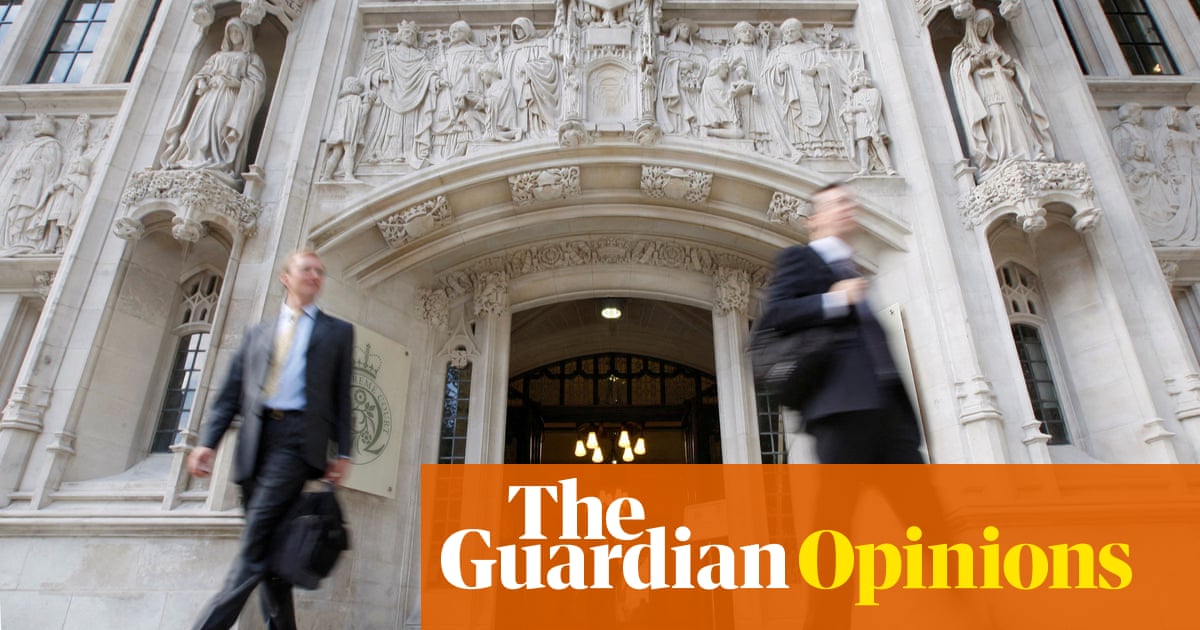In alandmarkruling, the UK supreme court has found that, under the Equality Act 2010, “sex” means biological sex – an unambiguous legal position with profoundly ambiguous social consequences. In doing so, the bench overruled the Scottishcourtsand curbed devolvedlawmaking. Crucially, the court said that a gender recognition certificate (GRC) doesn’t change someone’s sex under equality legislation. Thejudgmentoffers what many policymakers – includingSir Keir Starmer– crave: clarity. Amid the fog of culture wars, it was a moment of legal lucidity.
Many women’s rights advocatessawthe ruling as a firm defence of sex-based rights, especially where privacy from those perceived as male feels essential. A great number of trans people felt devastated by a judgment they fear will be weaponised. Its impact depends onnorms, discretion and politics: trans women can still compete with women in football, but not athletics. The domestic violence charity Refuge says its support for trans women won’t change. The legal view may be clear, but how it plays out inpracticeis anything but.
The judgment directly affects less than 9% of Britain’s 100,000 trans people – those with a GRC. For most, whether their gender is certified or not, their sex is private and irrelevant to how they live. Yet they risk slipping through legal cracks. That’s whyLord Sumption’s intervention mattered. A former supreme court justice, he argued that while the ruling gives service providers the legal power to exclude trans women from single-sex spaces, it doesn’t mandate it – a reminder that clear laws shouldn’t license quiet exclusions.
ButKishwer Falkner, chair of the Equality and Human Rights Commission, framed the ruling as a green light for institutional change – including the exclusion of trans people fromtoilets, NHS wards and sports. Her tone, at times implying compulsion, followed a course set by the then Tory equalities minister,Kemi Badenoch, in 2023 when she asked the EHRC to revisit the definition of sex in equality law. When watchdogsshiftstanceat a minister’s request, their neutrality comes into question. Still, the bigger story is a broader shift: from an era that leaned towards trans inclusion, via self-declared gender, to one rooted in biology and competing rights – seen by some as regression, others as reset.
Equality law now defines sex biologically, but in public life, notions of sex can be plural, lived and contested. The question is whether the UK canadaptto shifting norms without retreating into division. Clearly, lawful exclusion, even in the name of balance, can lead to lives lived apart. The pub landlord adding a gender-neutral toilet may offer compromise, but it risks creating a “separate but equal” trans existence. Formal equality doesn’t guarantee felt belonging. The danger is a third, liminal identity – neither fitting nor integrating, inviting silent self-exclusion. The challenge now is not only legal but moral. Can society protect sex-based rights while integrating trans people into public life – or does it expect them to assimilate on its own terms?
The supreme court’s decision might, forsome, revive a Victorian idea: to protect women legally, we must define them biologically. Efforts to ringfence women’s spaces could end up excluding trans people entirely. The worry is that a narrow legal clarification becomes a cultural victory lap. The bigger danger? That liberal societies struggle with those who don’t fit neat categories, leaving trans people in a third sphere: neither male nor female, nor completely welcome.
Sign up toFirst Edition
Our morning email breaks down the key stories of the day, telling you what’s happening and why it matters
after newsletter promotion
Do you have an opinion on the issues raised in this article? If you would like to submit a response of up to 300 words by email to be considered for publication in ourletterssection, pleaseclick here.
